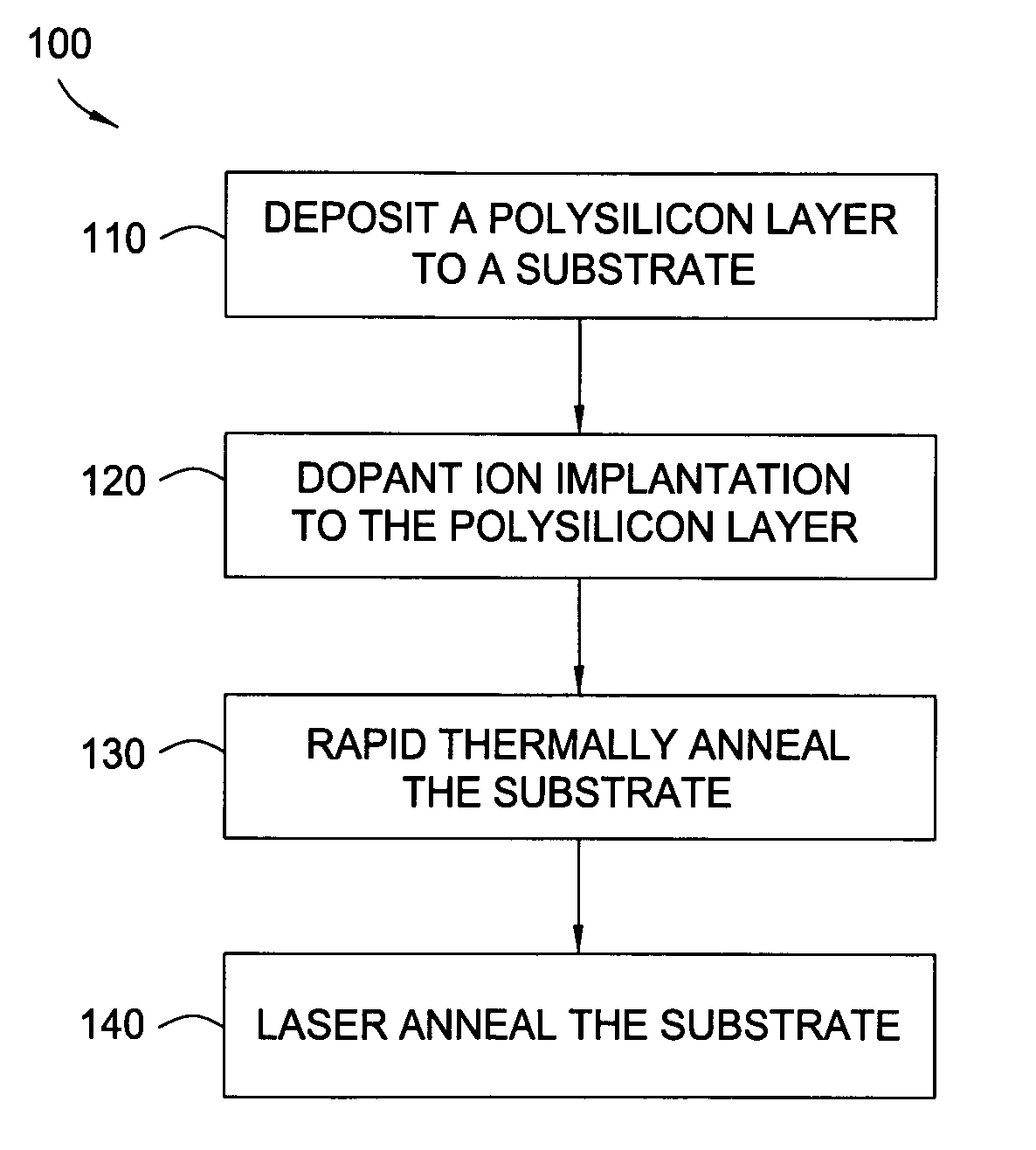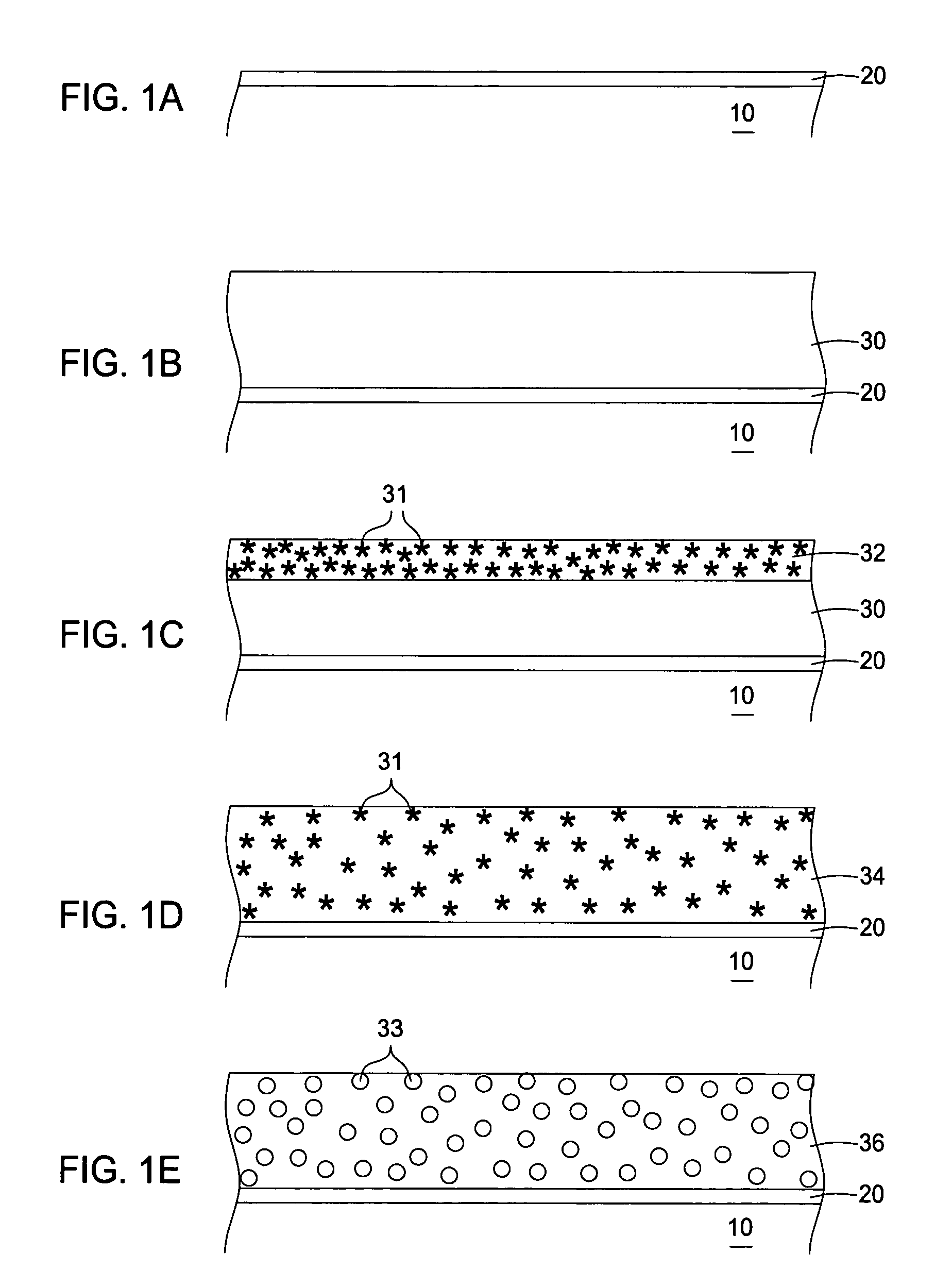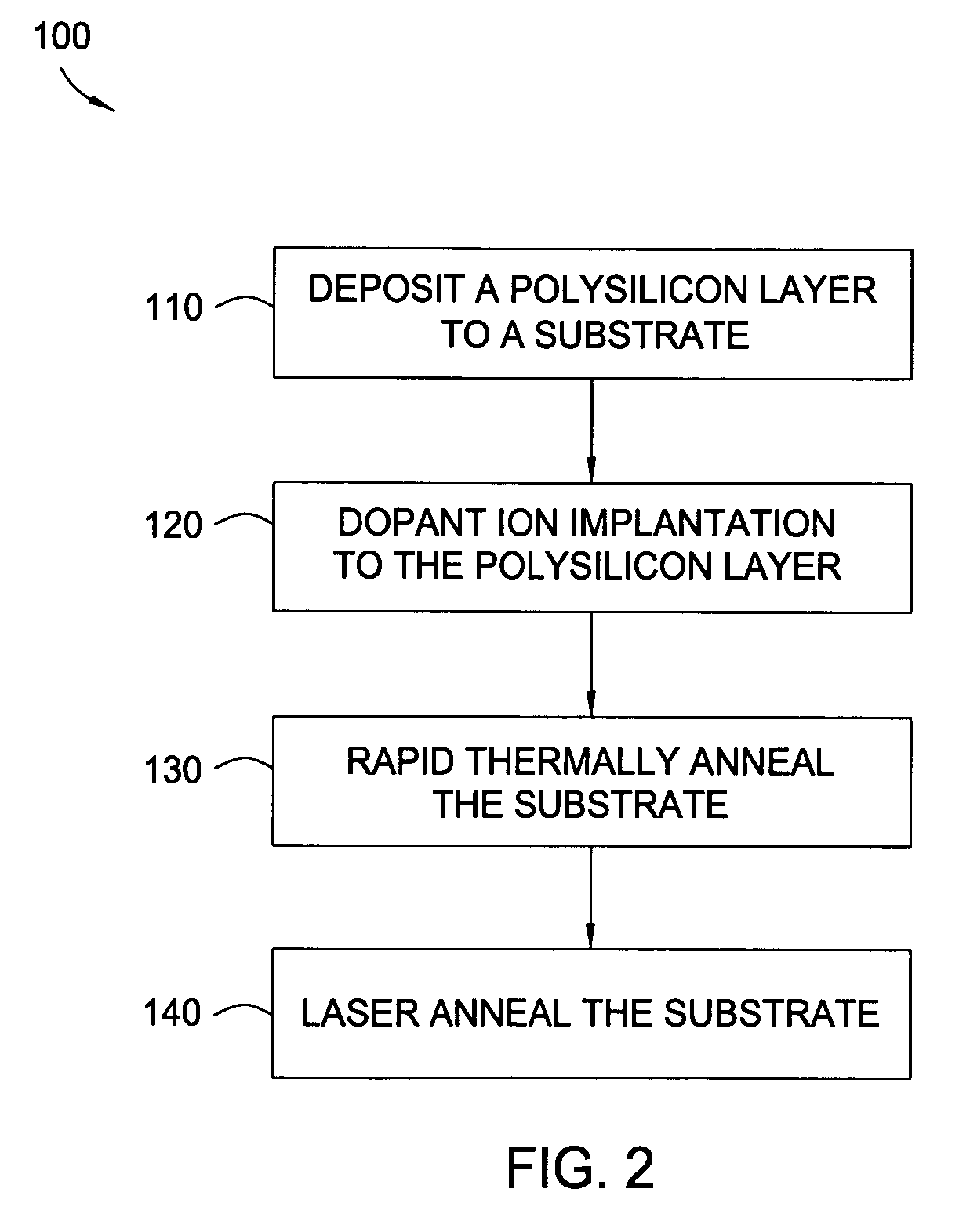Gate electrode dopant activation method for semiconductor manufacturing including a laser anneal
a laser anneal and dopant activation technology, applied in the direction of basic electric elements, electrical equipment, semiconductor devices, etc., can solve the problems of thermal budget limitation, degrade device performance and reliability, and the difficulty of producing ultra shallow source/drain junctions
- Summary
- Abstract
- Description
- Claims
- Application Information
AI Technical Summary
Benefits of technology
Problems solved by technology
Method used
Image
Examples
Embodiment Construction
[0017]The present invention teaches methods for forming a doped polycrystalline silicon layer onto a dielectric material, such as silicon dioxide, silicon oxynitride or a high dielectric constant material. Generally, the polycrystalline layer is doped by ion implantation, thermally annealed, such as with a rapid thermal annealing (RTA) process, and subsequently laser annealed to activate the dopants by a dynamic surface anneal (DSA) process.
[0018]FIGS. 1A–1E show a cross-sectional view of a gate stack structure progressing through processes disclosed in the present invention. FIG. 1A depicts a dielectric layer 20 disposed on a substrate 10, such as a silicon substrate used in semiconductor processes. In one example, substrate 10 may be a 300 mm p-type silicon substrate doped with boron to resistivity from about 15 Ω-cm to about 20 Ω-cm and is usually pre-cleaned with a conventional pre-gate clean prior to the deposition of dielectric layer 20.
[0019]Dielectric layer 20 may be deposit...
PUM
| Property | Measurement | Unit |
|---|---|---|
| temperature | aaaaa | aaaaa |
| time | aaaaa | aaaaa |
| temperature | aaaaa | aaaaa |
Abstract
Description
Claims
Application Information
 Login to View More
Login to View More - R&D
- Intellectual Property
- Life Sciences
- Materials
- Tech Scout
- Unparalleled Data Quality
- Higher Quality Content
- 60% Fewer Hallucinations
Browse by: Latest US Patents, China's latest patents, Technical Efficacy Thesaurus, Application Domain, Technology Topic, Popular Technical Reports.
© 2025 PatSnap. All rights reserved.Legal|Privacy policy|Modern Slavery Act Transparency Statement|Sitemap|About US| Contact US: help@patsnap.com



